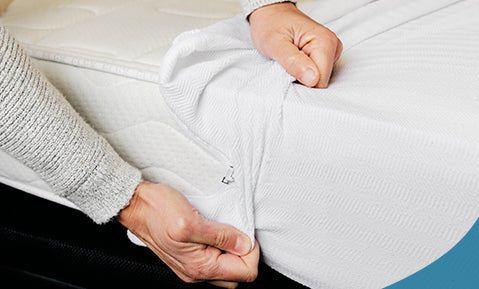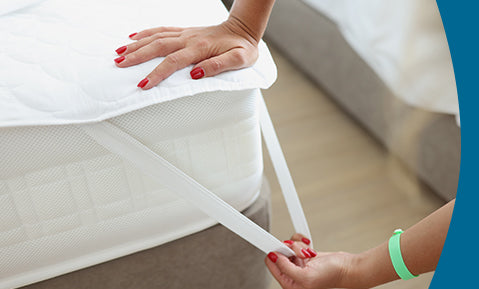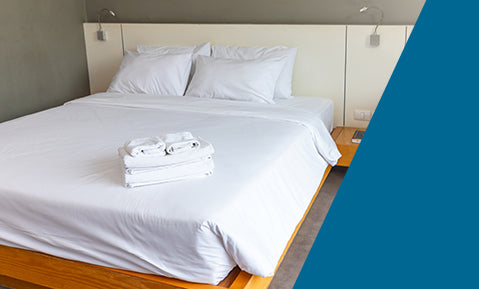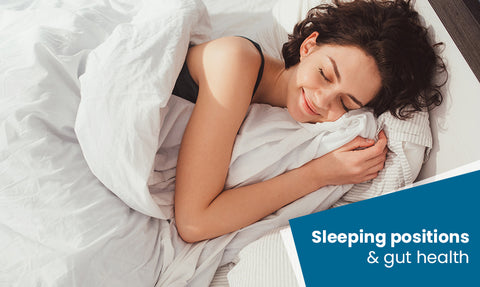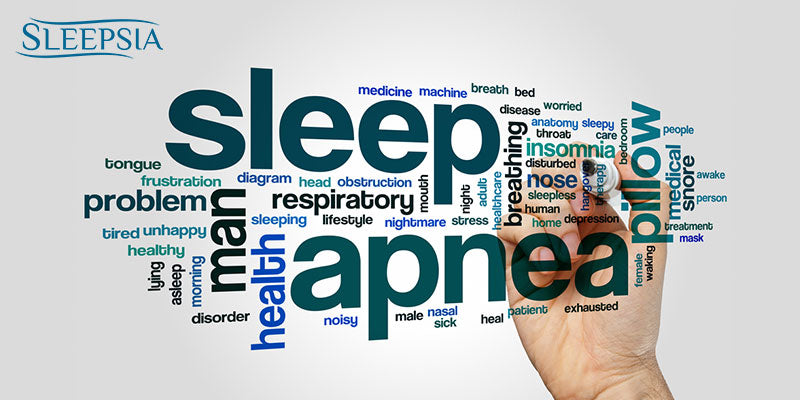
A serious sleep disorder, sleep apnea repeatedly creates breathing problems, resulting in loud snoring and lack of waking up fully rested. If you snore too loud during your sleep, then you may have sleep apnea.
In this article, we’ll look at different types of sleep apnea, their causes, treatment options, and ways to alleviate the symptoms.
Sleep Apnea Symptoms

Symptoms of sleep apnea include:
- When sleeping, gasping for air
- Very loud snoring
- Waking up because of obstructed breathing
- Breathing stops during night (usually noted by a partner)
- Sleepiness during daytime (hypersomnia)
- Problems in staying asleep (insomnia)
- Dry mouth
Most of the time, it is a roommate that identifies the problem. People with sleep apnea are rarely able to identify the patterns such as loud snoring or waking up in the middle of the night.
Types of Sleep Apnea
Types of sleep apnea include:
- Obstructive sleep apnea
- Central sleep apnea
- Complex sleep apnea syndrome
Let’s look at causes of different types of sleep apnea in more detail:
Obstructive Sleep Apnea
When muscles at the back of the throat relax, the throat slides back and, along with the uvula and tonsils, creates a barrier, restricting air flow.
When the airways narrow down or close completely, you lose your ability to breath properly. While many people wake up because of restricted breathing, they don’t remember waking up because the moment is ephemeral.
If your partner notices you choking, snorting, or gasping during sleep, then you may have obstructive sleep apnea. People with this condition rarely enjoy a well rested sleep and often feel drowsy in the morning.
Central Sleep Apnea
A rare form of sleep disorder, central sleep apnea occurs when the brain fails to send signals to breath properly to the muscles. So your body doesn’t make an effort to breath, causing shortness of breath and waking you up.
If you’re short of breath when you wake up in the middle of your sleep, then you may have central sleep apnea.
Complex Sleep Apnea Syndrome
People with this condition suffer from both obstructive sleep apnea and central sleep apnea.
So not only does their tongue collapse and creates a barrier but their mind fails to signal muscles to continue the process of breathing.
Sleep Apnea Risk Factors

Certain factors can increase the risk of developing sleep apnea. We’ve mentioned these factors below:
- Overweight or obese: extra fat desposited in your upper airway can restrict the flow of air and become a major risk factor for obstructive sleep apnea.
- Neck thickness: Usually, the greater the circumference of your neck, the smaller your airway. So people with thicker necks generally have a narrower airway.
- Genetics: a family history of sleep apnea puts you at a greater risk of developing this condition.
- Drugs: Drugs, such as alcohol, tranquilizers, and sedatives, exacerbate the symptoms of obstructive sleep apnea.
- Age: the older you are, the higher your risk of developing sleep apnea.
If you’ve recently been through a cold or flu, then you may have nose congestion, which aggravates the symptoms of sleep apnea.
Health Issues Related to Sleep Apnea
Sleep apnea can lead to serious medical complications including:
- High blood pressure
- Heart problems
- Hypersomnia (daytime sleepiness)
- Insomnia
- Increased risk of developing insulin resistance
- Metabolic syndrome
Sleep apnea may also lead to relationship problems. Since your partner may not be able to tolerate the loud snoring, they’ll have to sleep in another room.
Note: If you think you’ve sleep apnea, then get a diagnosis from a certified healthcare professional, as this condition can often lead to heart problems and other health complications.

Sleep Apnea Diagnosis and Treatment
With the help of your sleep history and certain medical tests, a health expert diagnoses sleep apnea. Here are the tests that may be prescribed:
- Nocturnal polysomnography: an equipment is used to monitor your breathing pattern, brain activity, heart beat, oxygen levels, and body movement as you sleep.
- Home sleep test: you’re provided with tests that can diagnose sleep apnea when you sleep at home. Equipment is provided for the same.
People with obstructive sleep apnea are often referred to visit an ENT (ear, nose, and throat) specialist.
People with central sleep apnea might be referred to a neurologist and cardiologist to evaluate the health of nerves and heart respectively.
Sleep Apnea Treatment
While milder cases of sleep apnea may be fixed with lifestyle changes, for those with serious cases, your doctor may recommend certain therapies and equipments such as:
- Continuous positive airway pressure (CPAP): A device with a mask is used to deliver air pressure, which keeps the air passages open.
- Adaptive servo-ventilation: A new innovative product, the adaptive servo-ventilation (ASV) improves airflow by recognizing your breathing patterns and delivering air pressure accordingly.
- Other airway pressure devices: Apart from CPAP and ASV, your doctor may provide other airway pressure devices such as bilevel positive airway pressure (BPAP) device or auto-CPAP.
- Oral appliances: Available at the dentists, oral appliances are designed to improve airflow and reduce obstruction.
- Oxygen: Supplementing oxygen when sleeping may help with central sleep apnea.
In very serious cases, the following surgeries may be recommended:
- Tissue removal
- Tissue shrinkage
- Implants
- Jaw repositioning
- Tracheostomy
- Nerve stimulation
Lifestyle Changes for Sleep Apnea

People with sleep apnea can benefit greatly from lifestyle changes. Some of these changes are mentioned below:
Exercise and Lose Weight
30 minutes of exercise with moderate intensity combined with a balanced diet boosts fitness level, lung capacity, and muscle strength.
Further, by being in a calorie deficit, you can lose excess weight and reduce the amount of fat in the upper airway, creating extra space for airflow.
Here are some at home workout routines that’ll help you stay fit and lose some extra pounds:
Don’t Consume Alcohol before Sleeping
While consuming alcohol may be fun, it will relax your muscles further, making it easier for your tongue to slide down.
Further, taking medications such as sedatives and tranquilizers exacerbates the symptoms of sleep apnea and may lead to serious health complications. Just prevent all bad sleeping habits like consumption of alcohol.
Inculcate Good Sleep Habits
Instead of your back, sleep on your stomach or side. This prevents the airway from getting blocked.
If you sleep on your back or side, then purchase the best shredded memory foam pillow with a good loft.
Get a shredded memory foam pillow to customize the height according to preference. This pillow enables you to simply insert memory foam and increase the loft.
Taking Everything Into Account,
Sleep apnea is a serious medical condition, which can lead to various health complications. Reach out to your doctor for diagnosis and to know treatment options. Also, make good lifestyle choices like consuming a balanced diet, exercising regularly, and following good sleeping habits to alleviate the symptoms of sleep apnea.
NEWS:
Sleep Disorders Add $94.9 Billion to U.S. Health Care Costs Each Year (May 7, 2021)
According to a new study from researchers at Mass Eye and Ear, Sleep disorders add $94.9 billion into U.S. health care costs each year. It also raises the cost of health care by 60%. Researchers discovered the number of doctor visits and prescriptions was nearly doubled in people with sleep problems such as sleep apnea and insomnia, compared to people without these conditions.

